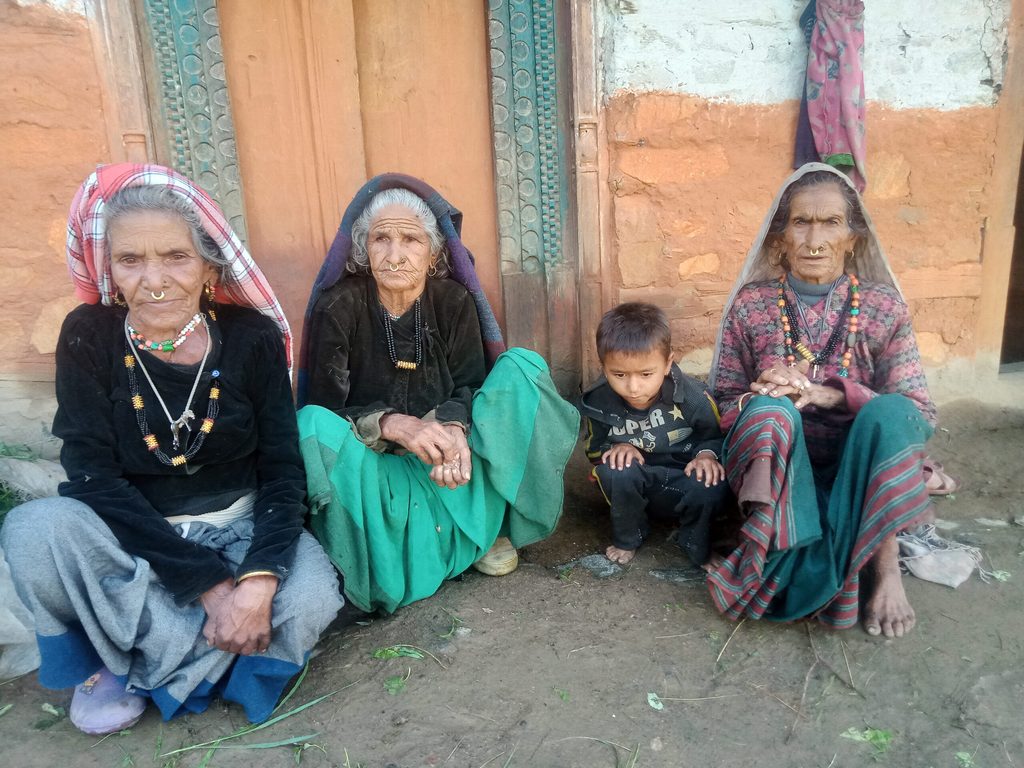Married at 9, now an advocate against child marriage
Suwa, 79, shares the story of her own child marriage in her community to prevent children from having their childhoods disrupted by the traditional practice.

Recalling her own marriage at the tender age of 9, 79-year-old Suwa tells us that in her community, she was considered to be getting married too late as most girls became brides by the age of 7.
“I had to face social stigma for marrying late. We had no access to information. There were no schools or any other opportunities. In such a situation, the law regarding child marriage was beyond our imagination. We only had the option to follow our ancient rituals and work in the fields,” says Suwa who comes from a rural community in Nepal’s Karnali province.
Risks of child marriage
Suwa explains that she and her groom were strangers when they got married. It took her almost 5 years to understand that they were husband and wife. In the meantime, she fell pregnant on numerous occasions but lost 4 of her babies as her body was too underdeveloped to sustain the pregnancies.
“Now, I have realised that I lost my babies due to early pregnancy. There was no one to advise us that child marriage and childbearing is life-threatening to both the mother and her babies,” says Suwa who went on to have 4 healthy children, 2 sons and 2 daughters.
Despite her advancing years, Suwa is now an active advocate against child marriage in her community, spending her days walking around her village to share her story. She tells adolescent girls and their parents about the negative aspects of early marriage and encourages girls to stay in school and only marry after reaching adulthood.
45-year-old Amar also campaigns against child marriage in his community. Married at the age of 15, he is well aware of the many challenges that young husbands encounter and is committed to preventing future generations from being forced into unwanted marriages.
“There was no one to advise us that child marriage and childbearing is life-threatening.”
Suwa
“I had to shoulder the responsibilities of generating an income for my family. In an environment where there are not many opportunities, I worked hard so that my family could have 2 meals every day. It was during these times that I realised the situation that child marriage brings to our lives. Now, I am determined my children will only marry after reaching the age specified by law,” says Amar.
Thinking back to her own wedding day 70 years ago, the thing Suwa remembers most was being dressed in new clothes. “It has been a long time since I got married. I was happy that I was wearing new clothes and jewelry, unaware that from that day forward my life would change. It was customary to get married at an early age. During those days, society was not broad-minded like today. There was no awareness raising about the adverse effects of child marriage.”
Raising awareness
Plan International works alongside our partner organisations to raise awareness about harmful traditional practices such as child marriage. Suwa and Amar were able to learn more about the consequences of child marriage, child rights, and the importance of education after attending training sessions. They now go door-to-door to ensure that all the children in their community, especially girls, receive an education and are not forced to marry early.
By ending child, early, and forced marriages, we believe that all children can enjoy the right to reach their full potential. Ensuring girls stay in school and have access to information about their sexual and reproductive health and rights will enable girls to make decisions about their futures.
The Preventing Child, Early, and Forced Marriage (PCEFM) project is being implemented by Plan International in 10 communities in Jumla, Kalikot, and Bardiya districts with the aim of reducing the rate of child marriages and supporting the government’s commitment to achieve its Sustainable Development Goals by 2030.
The project has so far reached 7,214 participants and 28 cases of child marriage have been prevented. In addition to this, 40 communities have declared themselves child marriage-free. At the national level, we are engaging with parliamentarians through the Human Rights, Law, and Justice Committee and Woman and Social Committee to influence the promulgation of the revised version of the national strategy and costed action plan to prevent child marriage.
Categories: Protection from violence, Sexual and reproductive health and rights


